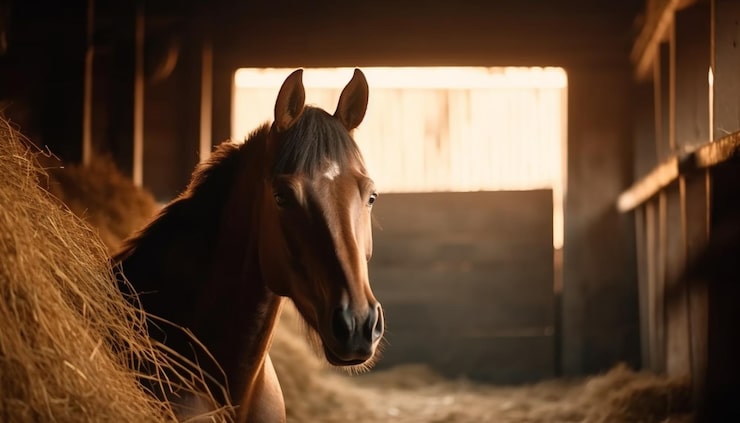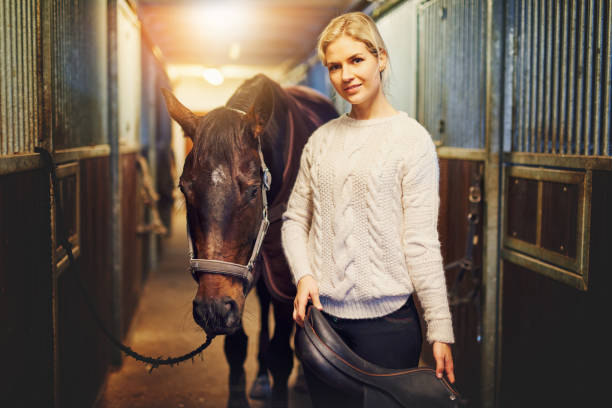As the seasons change, the health and well-being of our beloved older equines demand special attention. Seasonal vaccinations for senior horses are crucial in safeguarding their health, ensuring they remain vibrant and active companions. In this guide, we’ll explore the significance of these vaccinations and how they contribute to the overall wellness of senior horses.

Understanding the Importance of Vaccinations
Vaccinations play a pivotal role in preventing diseases that could otherwise compromise the health of senior horses. As horses age, their immune system naturally weakens, making them more susceptible to illnesses. Therefore, regular vaccinations become even more critical.
Why Focus on Seasonal Vaccinations?
The changing seasons bring about different environmental factors and potential disease outbreaks. This variability makes seasonal vaccinations particularly important. Tailoring vaccination schedules to the seasons helps protect senior horses from seasonal diseases like influenza and West Nile Virus.
Key Vaccines for Senior Horses
While many vaccines are essential, certain ones should be prioritized for older horses:
- Tetanus: A must-have to prevent this serious bacterial infection.
- Equine Influenza: Highly contagious, especially during colder months.
- West Nile Virus: A significant risk during warmer months.
Consulting with Your Veterinarian
Every horse is unique, and their vaccination needs can vary. Consulting with a veterinarian is crucial to develop a personalized vaccination schedule. Your vet can assess the horse’s health, age, and lifestyle to recommend the best vaccine plan.
Considering the Horse’s Environment
The environment plays a significant role in determining the vaccination needs. For instance, horses kept in areas with high mosquito populations may require more frequent vaccinations against mosquito-borne diseases.
For additional information on managing your horse’s environment, consider reading about pasture management.
Monitoring and Recording Vaccinations
Keeping detailed records of vaccinations is vital. This practice helps ensure that no vaccination is missed and aids in tracking the health history of the horse.
Effective Record Keeping
Use a dedicated health journal or digital app to track vaccination dates, types, and any reactions. This information is invaluable during veterinary visits.
Adapting to Seasonal Changes
As seasons shift, so do the needs of senior horses. Adjusting their care routine, including vaccinations, helps ensure their continued health.
Winter and Summer Considerations
During winter, focus on vaccines that prevent respiratory diseases. In summer, prioritize mosquito-borne disease prevention. For more tips on seasonal care, explore our article on senior horse hydration.
Common Concerns and Misconceptions
Some horse owners may have concerns about vaccinating older horses, fearing adverse reactions. However, the benefits of protecting against severe diseases far outweigh the risks.
Addressing Vaccine Hesitancy
Discuss any concerns with your vet. They can provide insights and reassurance, ensuring you make informed decisions about your horse’s health.
The Role of Nutrition and Care
Good nutrition and regular care practices complement the benefits of vaccinations, contributing to the overall health of senior horses.
Feeding and Routine Care
Ensure a balanced diet and maintain regular grooming and exercise routines. These efforts support a robust immune system.
For more on care, read about best bedding for senior horses.
FAQs
What are the essential vaccinations for senior horses?
Essential vaccinations typically include tetanus, equine influenza, and West Nile Virus. Consult your vet for a tailored plan.
How often should senior horses be vaccinated?
The frequency depends on various factors, including age, health status, and environmental risks. Your vet can provide personalized advice.
Can older horses handle vaccinations well?
Yes, most older horses handle vaccinations well, especially when administered by a professional. Always monitor for any adverse reactions.

Conclusion
Ensuring that senior horses receive seasonal vaccinations is vital for their health and longevity. By working closely with a veterinarian and considering the horse’s unique needs, owners can provide the best care possible. For more in-depth information, you can visit the British Horse Society’s resources on horse care.
This article contains affiliate links. We may earn a commission at no extra cost to you.
